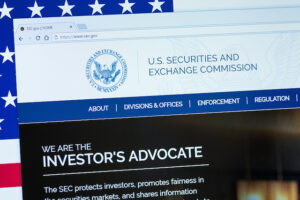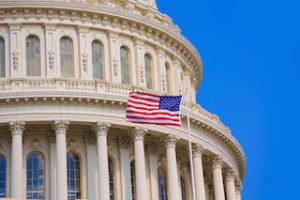The Biden-Harris administration announced this week the Department of Labor has finalized its Retirement Security Rule “to protect the millions of workers who are saving for retirement diligently and rely on advice from trusted professionals on how to invest their savings,” according to a press release.
This final rule will achieve this by updating the definition of an investment advice fiduciary under the Employee Retirement Income Security Act (ERISA) and the Internal Revenue Code, the release continues.
The controversial final fiduciary rule is opposed by many insurance organizations (see below). But, unless delayed by legal challenges, will become effective on Sept. 23, 2024. Some of the other exemptions and reporting needs will not become effective until September 2025.
The final rule is posted on the DOL website, and the Federal Register will publish it along with amended prohibited transaction exemptions on Thursday.
“The final rule and related amended prohibited transaction exemptions require trusted investment advice providers to give prudent, loyal, honest advice free from overcharges,” the release states. “These fiduciaries must adhere to high standards of care and loyalty when they recommend investments and avoid recommendations that favor the investment advice providers’ interests—financial or otherwise—at the retirement savers’ expense. Under the final rule and amended exemptions, financial institutions overseeing investment advice providers must have policies and procedures to manage conflicts of interest and ensure providers follow these guidelines.”
The updated definition of an investment advice fiduciary applies when trusted financial services providers give compensated investment advice to retirement plan participants, individual retirement account owners and plan officials responsible for administering plans and managing their assets.
“America’s workers and their families rely on investment professionals for guidance as they save for retirement,” said Acting Secretary Julie Su. “This rule protects the retirement investors from improper investment recommendations and harmful conflicts of interest. Retirement investors can now trust that their investment advice provider is working in their best interest and helping to make unbiased decisions.”
The press release cites recent analysis by the Council of Economic Advisers of just one investment product—fixed index annuities—suggests that conflicted advice could cost savers up to $5 billion per year. Such conflicts can reduce retirement investors’ returns and increase costs that chip away at many workers’ savings.
The DOL also said the rule ensures investment professionals can compete for business on a level playing field, instead of being hindered by a skewed system in which different standards exist for advice providers based on the products they recommend. “Firms and investment professionals that are working hard to give advice in retirement investors’ best interest should not be penalized for responsibly managing their conflicts of interest and making prudent and loyal recommendations. Retirement investors are best protected by a uniform and protective framework,” the release states.
Insurance industry expected to challenge rule
There is plenty of opposition to the new rule, and legal challenges are widely expected to surface now that the language of the final rule has been made public.
“Based on our preliminary review, in issuing this unnecessary and redundant rule, DOL disregarded data showing how millions of lower- and middle-income consumers will be deprived of access to affordable retirement planning assistance,” said Wayne Chopus, President and CEO of the Insured Retirement Institute.
Opponents of the rule including IRI, ACLI, NAIFA, and NAFA all stressed that the new rule is unnecessary due to existing regulations, pointing to SEC Regulation Best Interest (Reg BI) and the National Association of Insurance Commissioners (NAIC) best interest model regulation, adopted in 45 states and counting. The groups say that provides an enhanced consumer protection framework covering more than 90% of the U.S. population.
“These measures represent a better way to protect consumers than the Department’s ill-advised regulation. They enhance the standards financial professionals must follow, and, unlike the Labor Department’s fiduciary-only approach, they safeguard consumers’ access to, and information about, annuities, the only financial product in the marketplace that can provide guaranteed income for life,” said ACLI President and CEO Susan Neely.
“This new rule reflects DOL’s belief that these robust federal and state regulations do not effectively protect consumers, but DOL has offered no current, real-world evidence that the current regulatory framework is not working,” IRI’s Chopus said. “Under this rule, consumers will pay the price in lost opportunities to plan for a secure and dignified retirement.”
IRI said it will support a Congressional Review Act (CRA) resolution to reject the DOL regulation. The CRA allows Congress to disapprove a regulation—meaning it would have no further force and effect—within a specified period after a rule is final. The House and Senate must each pass the measure, and the President must sign it.
NAIFA CEO Kevin Mayeux said that over 90% of NAIFA members say the DOL rule will significantly increase their costs and costs for their clients. Currently, 70% of NAIFA members require no minimum asset thresholds for their clients. With the DOL rule in place, he said only 28% say they will be able to continue serving clients without imposing minimums.
“It’s obvious that under the DOL scheme many families lacking large account balances will be left to fend for themselves in a very complicated and often confusing retirement-planning landscape,” Mayeux said.
ThinkAdvisor reports the Labor Department’s new retirement investment advice fiduciary definition could cut annuity industry fee revenue by an average of about $3,100 to $5,100 per annuity agent, broker or advisor per year.
The definition could affect a total of about 1,577 career insurance agents, 86,410 independent agents and brokers, and 16,398 registered investment advisors, and the industrywide revenue hit could be about $325 million to $530 million per year over the next 10 years, DOL officials estimated, based on separate impact analyses provided by Morningstar and an academic paper prepared by a team of researchers led by Vivek Bhattacharya.













